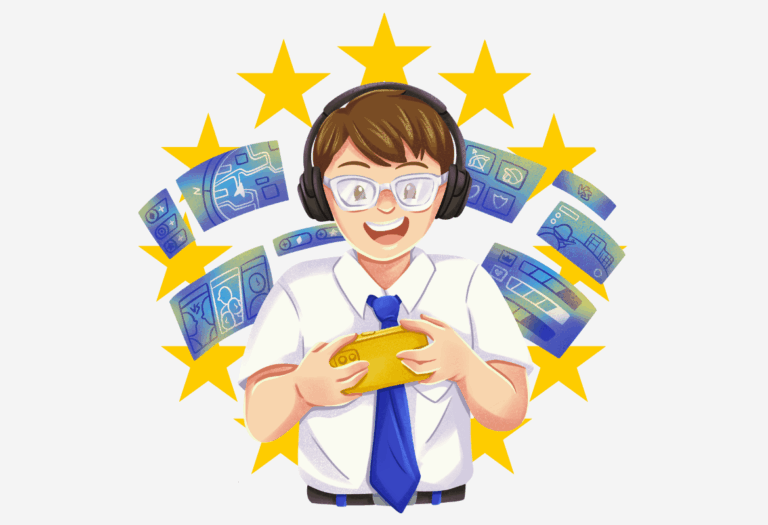Video games are often perceived solely as entertainment, yet they harbor an unsuspected pedagogical potential, especially in the field of language learning. Indeed, their use can offer a multitude of advantages, notably for learners facing specific learning difficulties, by transforming language education into an immersive and interactive experience.
With an almost infinite variety of genres and worlds, video games immerse players in alternative realities rich in dialogues, texts, and diverse contexts. This immersion in varied virtual environments allows not only for escapism but also for dynamic and engaging exposure to the language. Far from being peripheral to educational objectives, video games prove to be effective learning tools, capable of capturing the attention of young learners and motivating them to explore the language beyond traditional methods.

Integrating video games into language teaching
In the digital age, where youngsters are increasingly connected, traditional teaching methods struggle to engage interest. Teachers are, therefore, searching for innovative solutions to adapt language teaching to current realities. Video games, with their ability to stimulate engagement and active participation, emerge as relevant tools for achieving linguistic learning objectives. Indeed, they support vocabulary acquisition, listening comprehension, reading, writing, and speaking in a playful and intuitive manner.
Video games in foreign languages immerse learners in situations where visual and narrative context facilitates the understanding of new vocabulary. Subtitles, often present, improve reading speed and familiarity with sentence structure, while pronunciation practice can be enhanced through shadowing. In-game interactions, in turn, encourage oral practice in a less formal and more engaging setting.
Advantages for learners with learning disabilities
Learners with specific disorders particularly benefit from the multisensoral approach of video games. These offer a stimulating and motivating environment, equipped with reward systems that can improve self-esteem and concentration. The interactive aspect and active participation in games facilitate vocabulary memorization and encourage peer collaboration, creating an inclusive and effective learning space.
Expanding horizons with video games
Beyond these advantages, video games open the door to various cultures and languages, allowing learners to immerse themselves in different cultural contexts and enrich their understanding of the world. This promotes an open-mindedness and cultural sensitivity essential in language learning. Video games can thus become windows to the world, offering a rich and diverse learning experience that goes beyond mere linguistic acquisition.

The D-ESL project uses video games for language learning, primarily targeting learners with specific learning difficulties. Its main goal is to make language education more immersive and engaging by integrating video games into teaching. This approach is beneficial for those requiring a stimulating learning environment, promoting the acquisition of vocabulary and language skills in a fun way. D-ESL offers an online course for those interested in this innovative teaching method.
For those who wish to further explore this learning method, the online course of the project
D-ESL offers a comprehensive training on designing games dedicated to language teaching.
D-ESL also provide support for teachers in adopting innovative tools and practices to create and use video games in their language courses.
To know more about the project and its results, go to their website, and learn more!



